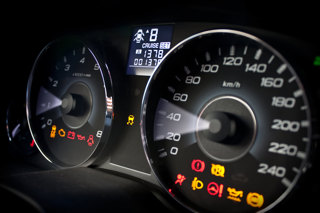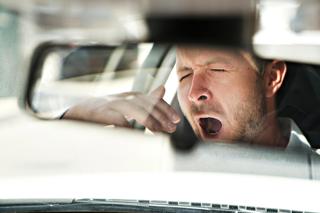Calls for drivers to be prosecuted for exceeding the speed limit by as little as 1mph have been criticised by motoring groups.
Chief Constable Anthony Bangham, roads policing lead for the National Police Chiefs’ Council (NPCC), has called for an end to officers allowing a 10% buffer over the signposted limit.
He told delegates at the Police Federation’s annual roads policing conference in Hinckley, Leicestershire, that police spend too much time trying to justify speeding tickets and being “patient” with speeders.
Bangham said: “Let's change the message – we are proud to be law enforcers. I do not want the public to be surprised, I want them to be embarrassed when they get caught.
“They need to understand the law is set at the limit for a reason. They should not come whinging to us about getting caught.
“If booked at 35 or 34 or 33 that cannot be unfair because they are breaking the law.”
He said the lack of money and resources could be mitigated if “all police officers make it their business to police the roads”.
However, the RAC said it was wrong to penalise law-abiding motorists who may occasionally go very slightly above the limit.
The RAC's road safety spokesman Pete Williams said: "While speed is clearly a contributory factor in many road accidents and there is no question that drivers should obey the speed limit, it doesn't seem sensible to make motorists constantly look at their speedometers for fear of drifting a few miles an hour above the limit.
"Originally, the leeway of 10% plus 2mph over the speed limit was given to take account of inaccuracies that may occur because of camera and speedometer calibration. Surely, the police's focus should be on tackling those who exceed the speed limit consistently, and, or excessively, as they present the greatest road safety risk. It seems very wrong to penalise law-abiding motorists who may occasionally go very slightly above the limit.
"Speed awareness courses have helped many motorists understand the importance of safe speeds. These should continue to be part of the solution, and forces should not be in a hurry to load fines and penalty points onto drivers who may well be mistakenly making a small error."
The AA said it was also concerned that the move could be counterproductive. AA president Edmund King said: “The last thing we want is drivers glued to the speedometer 100 per cent of the time. We want drivers to concentrate on the road ahead.”
There was support from the road safety charity Brake however. Joshua Harris, director of campaigns, said: “Speed limits are exactly that, limits, set at the top speed that it is safe to drive on any particular road. Drivers who go beyond these limits are behaving recklessly and endangering the lives of themselves and others.
“Speeding penalties must prove an effective deterrent and Brake supports Chief Constable Bangham’s call for the increased use of fines and penalty points. Public perception over the acceptability of speeding needs to change and this can only happen with clarity in the law and penalties which truly deter offending.
Brake says that the speed of a vehicle is the key factor determining the severity of injury caused in any road crash; faster speeds mean greater stopping distances and more forceful impacts.
In 2016, there were five deaths a day on our roads on average, Harris said: “This is a truly shocking figure and any intervention which helps put an end to these needless tragedies should be welcomed."
For more from the roads policing conference, see the next edition of Fleet News.





















Ian Coleman - 01/02/2018 11:16
sorry correct me if I'm wrong but the 10% tolerance was put in place as that in how much +/- a speedo can be out by. that is one reason a panda car can stop you as their speedo is not calibrated, traffic cars have laser and radar system that are calibrated and give a true reading. so unless every car is going to be calibrated before it leave the factory and then re-tested every 2 years as HGV are. Then how can this zero tolerance towards speeding work